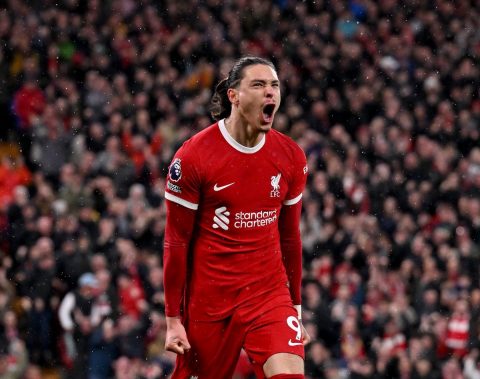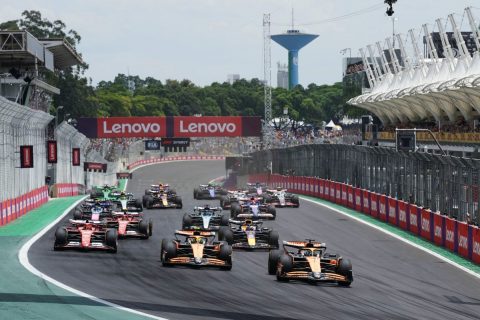The Brazilian Grand Prix was a crucial turning point in the 2024 Formula 1 season, as Max Verstappen’s sensational performance at Interlagos brought an air of relief to the paddock. Christian Horner of Red Bull and McLaren’s Lando Norris exhibited visible signs of relief as the Dutchman’s commanding drive effectively settled the championship narrative, which had been marred by recent controversies.
Masterful Display at Interlagos
In what many are calling a masterstroke, Verstappen, who hadn’t won since June’s Spanish GP, showcased his mastery in wet conditions. His performance invoked comparisons to Ayrton Senna’s legendary drive at Donington in 1993. On the first lap, Verstappen effortlessly overtook two cars at Turn 3, demonstrating the kind of confidence and skill that has defined his racing career.
Strategic Brilliance
Verstappen’s prowess was particularly evident during a crucial second restart after a red flag. Rapidly closing the gap on Alpine’s Esteban Ocon, he executed a daring manoeuvre to claim the lead, just as Norris’ misstep allowed Ferrari’s Charles Leclerc to apply pressure. This move encapsulated the season’s narrative: Norris, despite a stellar performance, faltering at key moments, while Verstappen’s flawless execution with Red Bull’s reinvigorated RB20 carried him through.
Reactions and Revelations
The race was not without its share of drama and controversy. Verstappen’s post-qualifying frustration with race control’s decisions underscored the tensions simmering beneath the surface. Complaints regarding race management resurfaced, drawing parallels to the 2021 Abu Dhabi incident, where Verstappen benefited from contentious rulings.
False Accusations and Racing Ethics
The accusations of unfair officiating in Brazil, particularly from Verstappen’s camp, highlight ongoing debates about race control consistency. Despite Red Bull’s grievances over qualifying protocols following Lance Stroll’s crash, analysis reveals these criticisms lacked merit. Timing arguments were debunked, with the constraints of the red flag procedures becoming apparent during the dramatic session.
Implications for the 2024 Season
Verstappen’s return to winning form means a potential fourth world title is within his grasp, solidifying his status as a modern F1 great. However, for Verstappen to transcend record-statistical greatness, he must navigate the fine line of aggressive racing ethics. Leclerc, acting as Verstappen’s most persistent on-track challenger in Brazil, exemplified a new strategic approach that avoided crossing lines of sportsmanship.
The upcoming Qatar Grand Prix may further refine track regulations, shifting the competitive landscape. Still, in Brazil, the Dutch driver proved that brilliance on the track need not be accompanied by controversy—a win marked by pure, strategic excellence.
As Formula 1 turns to Qatar, Verstappen’s victory serves as a reminder that the pathway to greatness is paved as much by character and skill as by victories alone. His Brazilian triumph underscores a season-long narrative where resilience, adaptability, and a return to focusing on pure racing craft have brought him tantalisingly close to another championship crowning moment.









